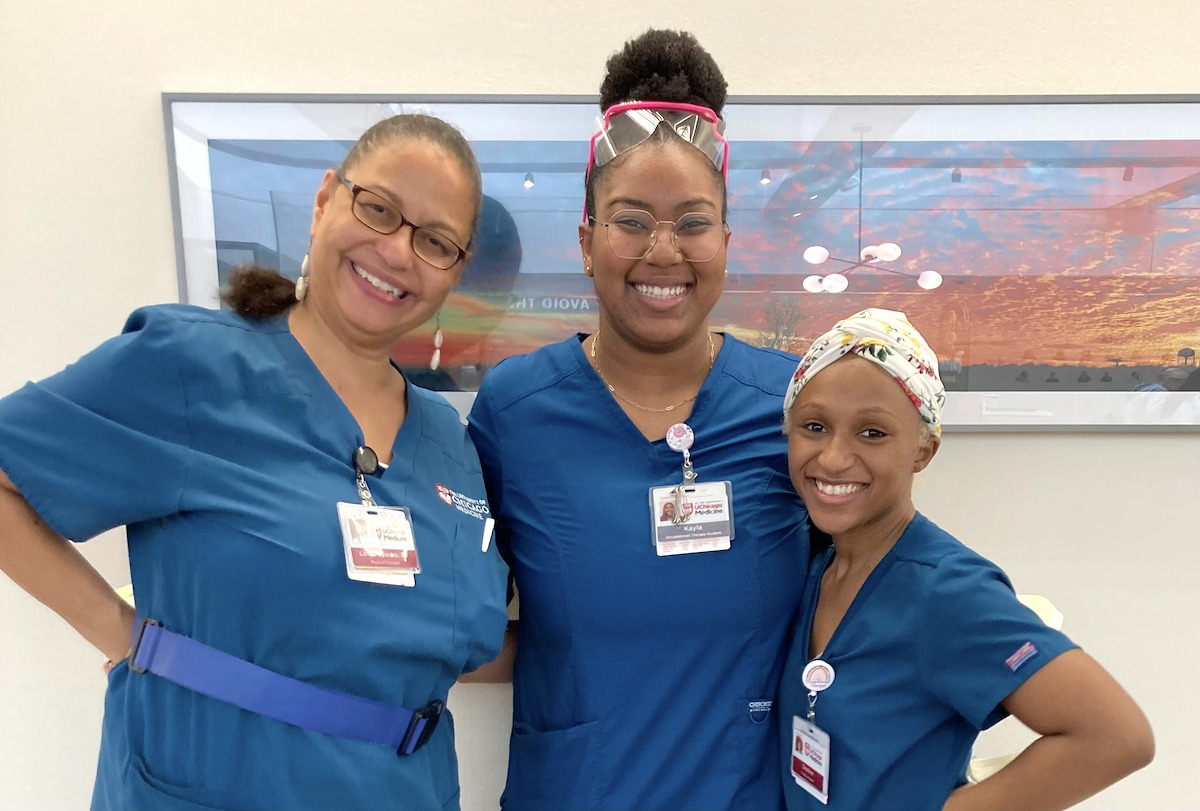Student Blog
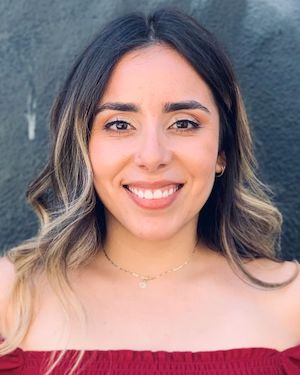
AOTA: 10/10 Would Recommend ⟩
April 9, 2022, by Silvia
Back in February, Dr. Rafeedie sent me an email with the subject “Free AOTA Registration” — which was weird because I never win anything — apparently, I had won a free registration for the AOTA Inspire 2022 Annual Conference & Expo. As I was entertaining the idea of buying a flight ticket to Texas for this conference, Bianca Ojeda and Dr. McNulty did the most to convince me: they told me about the USC Trojan Reception. And although they had me at party — I mean reception — I still had to con$ider other factor$. In her email, Dr. Rafeedie added, “Not sure if you would plan a trip to San Antonio around this . . . but virtual is also an option.”
Planning a trip meant I would spend money on my flight, hotel, and food, which I hadn’t necessarily budgeted for, and because I am working on not making impulsive decisions, I slept on it before accepting. The smart, financial friendly, option would have been to attend the event virtually. Did I do that? No — but listen, the hotel was discounted because I split it with friends, AND the experience was priceless. I should say that the only reason I’ve been able to remain cool, calm, and collected despite the hefty price tag attached to graduate school/USC is because I continuously tell myself that this is an investment I am making. Repeat after me: I am investing in myself and my future. So, truly, in the name of professional development and networking, I decided to book my flight and attend the conference in-person in Texas.
Here’s a little glimpse into the experience:
Sessions
The conference started on Thursday and went until Sunday. Some friends arrived Wednesday to attend sessions that were happening on the first day of the conference, while others arrived on Thursday night. We downloaded the AOTA app which allowed us to view the different session topics and times, making it easier to create our “AOTA session lineup” (Plevack, 2022). My lineup included “conversations that matter” and “short courses” on topics such as collaboration between OTs and behavior analyst, meeting the mental and behavioral needs of children, moving into mental health practice, and sexuality as a meaningful occupation, to name a few. We also attended the Eleanor Clarke Slagle Lecture as a group. In case you missed it, Dr. Mary Lawlor became the “16th USC-affiliated recipient of the [AOTA Eleanor Clarke Slagle Lectureship] award, and will deliver her Slagle Lecture during the 2023 AOTA conference in Kansas City.”
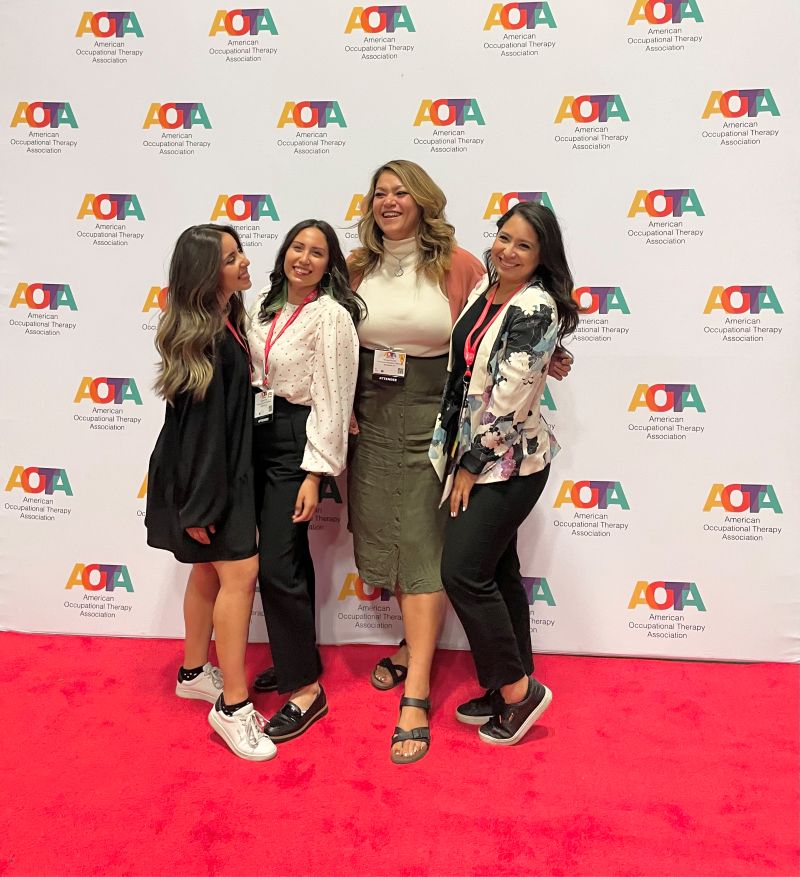
Friends at AOTA: Silvia Hernandez-Cuellar, Daniela Flores-Madriaga, Michelle Plevack, Monica Martinez
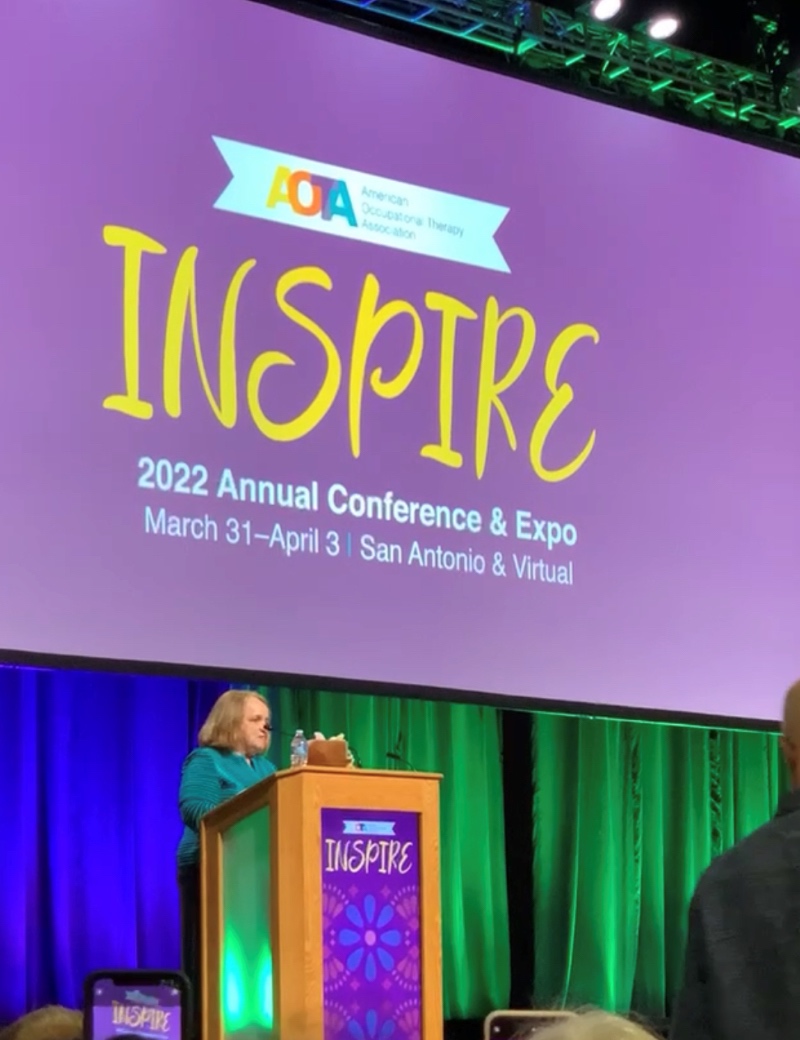
A proud moment: Dr. Mary Lawlor winning the Eleanor Clarke Slagle Lectureship award

AOTA day 3, but first #SELFIE
EXPO: USC Booth
I was taking my first sip of coffee, sitting in an NBCOT session, when I received a text that read: “Hi! Just confirming you’re working the booth this morning . . .” Woops. So yes, I might’ve forgot that I was supposed to be working a shift and arrived 15 minutes late, but everything worked out. I talked to many OT peeps — students, faculty, staff, alumni, fieldwork educators, vendors, the list goes on. I also I put my networking skills to work and felt the power of being part of the #TrojanFamily. Good things await and it is exciting!
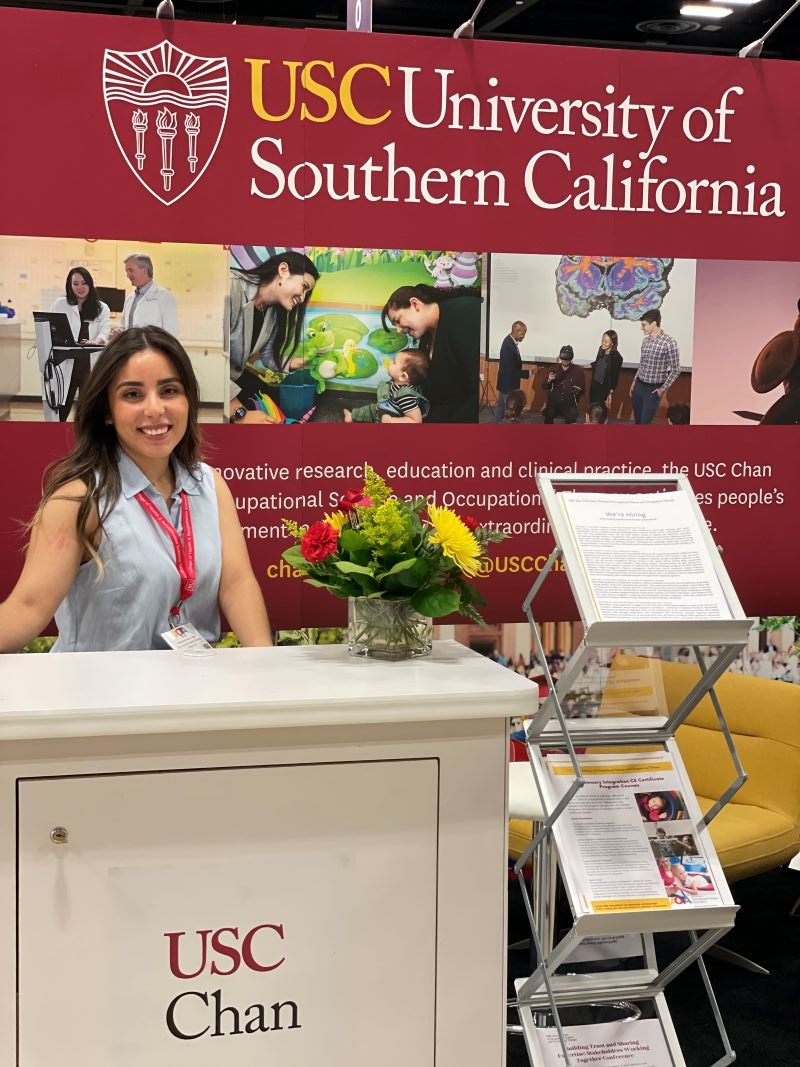
Me at the USC both; working hard or hardly working?
Trojan Family Reception
I can’t say much because what happens in Texas, stays in Texas. However, I will say that even if you don’t win one of the raffled prizes (remember I said I never win anything), you will still have a night to remember.
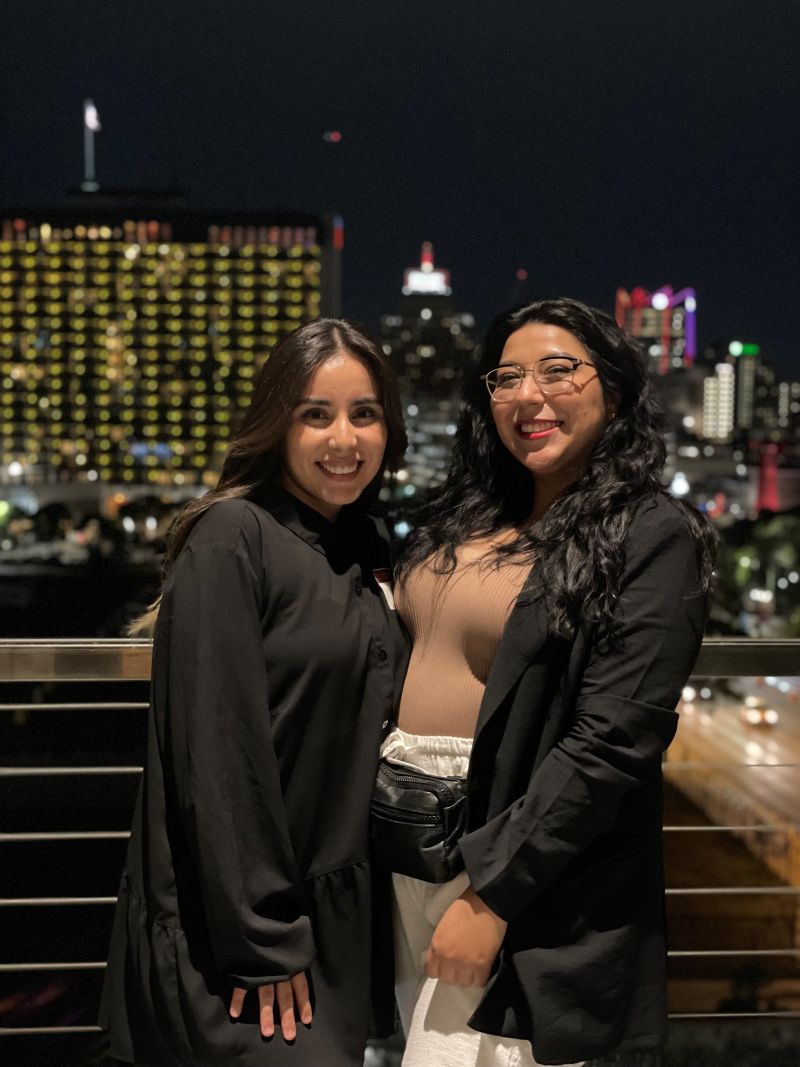
Bianca, I, and the view from the balcony of the Trojan Family Reception
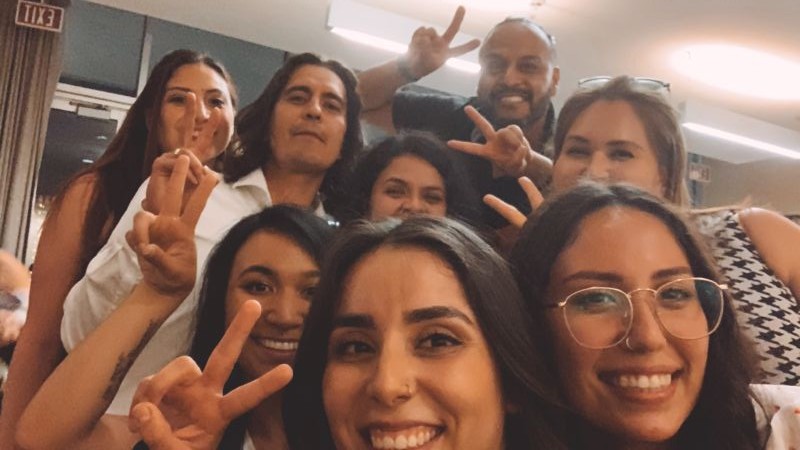
Una foto con el Dr. Diaz
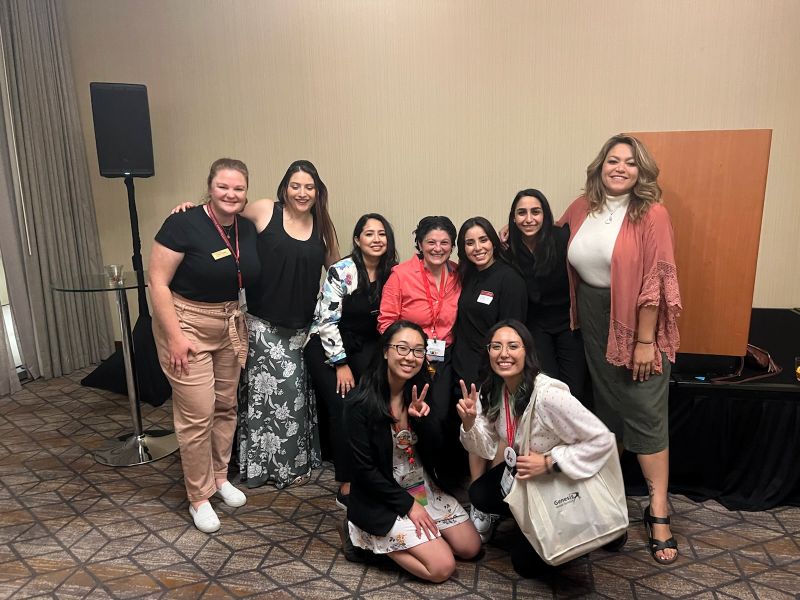
MA2 students with Dr. Rafeedie
If you ask me, I would 10/10 recommend that you attend an AOTA conference.
⋯
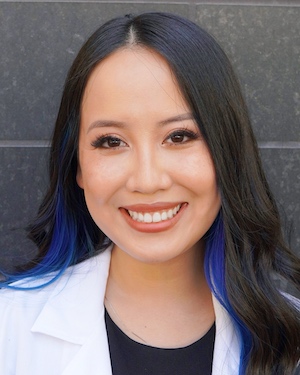
Are You New Here? ⟩
April 7, 2022, by Teresa
Getting Involved School/Life Balance
Yeah? Thinking about what you want your time here to look like? Then this one’s for you.
Growing up, I was that kid–the ASB, class president, honor society, involved in anything and everything type of kid. In undergrad, I took the complete opposite approach: focused my efforts on academics and dedicated any remaining time to a select few organizations I felt truly passionate about. Going into this program, I knew I wanted to maximize my two years here but was still figuring out what that meant and how it would be affected by . . . well, let’s just call them unprecedented times for old time’s sake.
I’ve held several roles in several student groups and programs here, including this one as student ambassador. I came into all of them during these infamous times and with that came a unique set of challenges, as I’m sure many of my fellow student leaders can relate to. So as I step out of my formal roles, here are some questions I’ve frequently gotten . . .
- How do I know what to get involved with? Obviously, the answer to this varies person to person. For me, I chose to get involved with things I felt aligned with my personal values, experiences, and goals which include advocacy, working with underserved communities, and mentorship. Identifying these are important because 1) no one can ever take their importance away from you and 2) they can be used to ground yourself if you ever lose sight of why you started the work in the first place. Working toward things you care about is always going to be a stronger motivator than doing things only because it’s what you think you’re supposed to be doing. This is not to say that you can only get involved with something you have a personal stake in. You can still be a strong ally, leader, and resource as long as you’re committed to putting in the work to understand and uplift larger causes.
- When should I get involved? With how short this program is, it may feel tempting to hit the ground running and take on everything all at once. Take the entire first semester to focus on school and establish a strong foundation so that you’re better able to gauge how much more you can take on. Take on more slowly over time if you are willing and able, but recognize your limitations. Becoming a leader is realizing that you are but a small, yet mighty, cog in a much larger machine. If you are no longer working, the entire system doesn’t work and the cause you serve pays the price. That being said, being proactive and reaching out to student organizations early doesn’t hurt! However, they will certainly provide you with more information to get involved when the time comes.
- What about the things I struggle with? They are inevitable growing pains, which hopefully subside as you progress and develop into your role(s). Be committed to receiving and applying feedback and getting out of your comfort zone. For me, this was role delegation and for several reasons: being hesitant to add more onto someone else’s plate, unlearning perfectionism, and learning to ask for help. I believe the hallmark feature of a great leader is the ability to empower others to become leaders themselves. This doesn’t happen when one person takes on everything, alone, operating in a silo. It happens when the dissemination of roles provides opportunities for emerging leaders to learn and grow.
- How do you stay organized? Definitely not without trial-and-error. In this age of technology and coupled with the pandemic, doing everything digitized became the new norm. While it works for some, I can say with confidence that it doesn’t work for me. Setting reminders, alarms, and notifications is sometimes effective but other times, I will simply swipe away or have my phone silenced and forget about tasks altogether. Out of sight, out of mind. I opt for paper-and-pencil because there’s just something so gratifying about physically crossing items off a list! This way, I am also setting spatial boundaries in addition to the temporal boundaries I will describe in #5. My phone is associated with leisure and social participation while my computer and planner are associated with work and productivity. Every person is different, try out various things and find what works for you!
- How do you balance involvement, academics, and your personal life? At the start of this program, I was determined to make the most out of an unfortunate situation so I did hit the ground running and poured myself into involvement and academics. During a presentation from the USC Kortschak Center for Learning and Creativity, we completed a Balance Wheel activity and mine was largely dominated by one color (work) and minimally by another color (sleep). Seeing this visual representation of myself as a two-dimensional occupational being forced me to assess whether I wanted my life to be a never-ending cycle of work, sleep, work, work, work, sleep, work. I did not, so I put boundaries in place. This included making a list of prioritized work instead of always tackling an endless and ever-growing “to do list.” This was followed by dedicating regular and reasonable hours toward these priorities and once these hours elapsed for the day, I would stop even if the work wasn’t finished. It’s fine–the work can wait. Stop and take the time to engage in your meaningful occupations–the ones which will re-energize you and keep you going.
To end this penultimate narrative, I emphasize how important mentorship is based on that which I’ve received and wished I’d received. My mentors have been both formal, through positions I’ve held and those who have guided me, as well as informal, through people I admire and who inspire me through their own work. There aren’t any hard and fast rules to what mentorship has to look like but being positioned to influence young minds is both power and responsibility and is not to be taken lightly. While it may require more effort and time on your part to invest in future generations, it is the hope that this kindness continues to be paid forward and improved upon year after year so that even once your time in the halls of CHP comes to an end, the causes you worked towards persist onward.
It appears I love leaving you with a quote of sorts, so we’re just going to go with it . . .
“Fight for the things that you care about, but do it in a way that will lead others to join you.”
— Ruth Bader Ginsburg
⋯
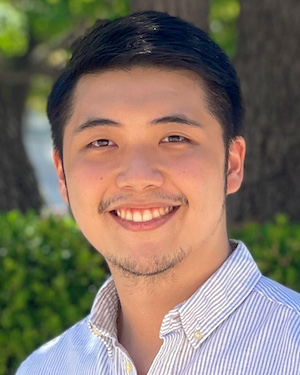
A Letter to the Future International Students ⟩
April 5, 2022, by Marvyn
Admissions Community International
Hello there!
If you are reading this blog, you are either a current student (whom by no means I coerced to read LOL), you are aspiring to become a student of USC Chan, or you are already on your way to becoming one. Wherever you may be in your life, I encourage you to read on.
Allow me to tell you this: Being a part of the USC Chan community is genuinely a life-changing opportunity. I am not saying this just because I am a student ambassador, but I am genuine when I say that my experience at USC Chan has been so enriching and filled with countless, irreplaceable memories. If you have been following all my blog posts, I have nothing but love for the Post-Professional Master’s program and USC in general. No matter what your professional and/or life goals are, USC Chan is the best place to achieve them. I still cannot believe how lucky I am to belong in such a great community of professionals!
I actually didn’t think I could become a USC Trojan. I was already working as a pediatric occupational therapist back in the Philippines, and I was very happy. I was already touching people’s lives in a way that OTs uniquely do. With that said, I always felt like I needed to grow and expand my horizons. So, when I saw the opportunity to apply for USC in this program, I felt like I was about to battle a behemoth. It was so intimidating. I was asking myself, “Why would the university even consider someone like me to be part of their program? I’m so delusional to think that they would spend time looking at my profile!” The funny thing is, the only reason that motivated me to shoot for the stars, aka making and submitting my application, was because I was stuck in the middle of a pandemic lockdown. I guess you could say that circumstances work for you as long as you give it a shot.
I’ll affirm what you may feel: It is quite daunting to take on such an endeavor as this — being away from your family, being challenged to be on your own, and navigating through your life mostly by yourself. But what I can also say is that in pursuit of your goals in life, everything can be made possible with the exposure you get to people around you at USC Chan. I was so fortunate enough to be given the privilege of meeting such a diverse group of people from all over the world! I never felt like I was alone and I knew that we all have something in common: our passion to become the best occupational therapists we can be. So even if I knew that the road I am taking is very long and difficult, I also know that I have people right by me who can support me in my aspirations.
Breaking out of your comfort zone is definitely what you can expect from this experience. Based on my own experience, I felt like the past year has been such a year of growth for me in a way that’s not just about being an OT. As a dreamer and an aspirer, this past year really pushed my boundaries and shaped (and re-shaped) who I thought I was and who I want to become. I believe that being placed in such an uncomfortable situation can lead to the most growth in your life. Truly, I am a waaay better person than I was before, and I can never trade this evolution for anything.
Now that I’m at the home stretch of my program (ONE MONTH LEFT!), I feel like I need more time. I’m not ready to leave USC Chan yet. It feels like I just got here, and I am still getting used to all the growth I am having under the USC blanket. But that’s the thing, right? Putting yourself in situations that push you out of your comfort zone is a crucial part of the USC experience. Being part of the program is much more than just studying; it is about gaining experiences that will truly change your life. And now that I am almost done with the program, I feel like USC is thrusting me toward another set of challenges and opportunities for growth. I guess I’m liking the feeling of discomfort after all!
Alas, I am writing all this because I just want to tell you all how excited I am for you to experience what I have had during my time here at USC Chan and much more. It sounds bittersweet to think that I am about to graduate and that all of you will fall in love with USC Chan in your own unique way. I will forever be grateful to USC for giving me this chance of a lifetime, and I truly look forward to seeing what the future holds for not only myself but for you as well. You are truly in for a ride of your life.
⋯
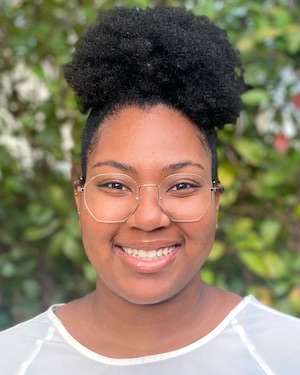
Imposter Syndrome . . . Is That You? ⟩
March 31, 2022, by Kayla
Community Diversity Life Hacks
As a part of my PP-OTD journey, my residency is a year long. In the grand scheme of things that isn’t a long time, but when you’re in the middle of it, you start to feel the time moving by. You have time to think about the past, where you are, and most terrifyingly . . . the future. As I’ve started thinking about my future, for the first time in a long time, there is so much uncertainty. In undergrad I knew, OT school was next. In the MA program, I knew my OTD was next. But now that I’m entering the last 6 months of residency, the next chapter has yet to be written and I’m definitely feeling the pressure.
If I could put words to what I’m experiencing, the definition of imposter syndrome would sum it all up quite nicely. For me, imposter syndrome manifests as the feeling that everyone around me can sense that I’m “faking it until I make it” and is judging me . . . big time. Honestly, this is a new experience for me and it’s been causing a lot of unneeded worry.
For most of my academic career, I was blessed enough to avoid seriously feeling the effects of imposter syndrome. As a student in undergrad or in the MA program, we were all in it together *insert High School Musical here* and it felt like everyone else was just as confused and doing equally as much soul searching as I was. But now, in residency, where I’m working with more experienced practitioners and with other students who have different strengths than me . . . those thoughts are starting to creep in. And as a result, I found that when I make mistakes, as any human does, I start feeling super down on myself and questioning my ability to be a good OT.
After taking some time to sit with my feelings and coming to realize what has been going on, I found that reframing my thoughts and experiences helped sooooo much. Taking the time to validate the work that I’m putting in, acknowledging the growth that I’ve experienced over the past six months, and reassuring myself that I am doing my best and that’s what matters.
Coincidentally, in the midst of feeling all of the feels, I got a text message from one of the senior physical therapists at my residency site to meet up and eat lunch with her and the other OT/PT/PTA students of color! We sat and talked about our unique experiences and it really helped me feel heard, and reassured me that: 1) I was not the only person to ever feel like this, and 2) that by no means do these feelings last forever. You can say that I found my little communOT/PT 😊 This came at the seemingly perfect time; more than anything it was a reminder that that this too, shall pass.
⋯
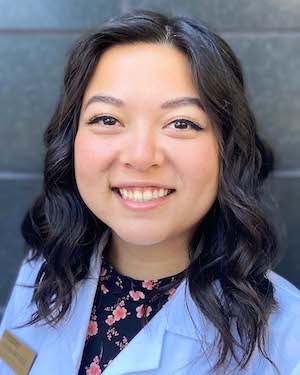
Eclectic Electives ⟩
March 29, 2022, by Alyssa
The Chan elective options are great for certification hours if you know you’re passionate about specialties like sensory integration or hand therapy. As someone who didn’t want to specialize just yet, I decided to register for a courseload that spanned a bunch of different topics. You can take 12-14 units of electives, and I took full advantage of that with 5 electives.
OT 560: School-Based
I was in the pediatrics immersion my first fall and it was entirely online, so I took this in the hopes of a general review of pediatrics essentials. I never really saw myself working in schools, but 560 has been so fun that now it’s looking pretty nice later down the line in my career. The class includes creative intervention projects, practice with assessments, and this semester we had an opportunity to volunteer with local high school students. This class inspired my externship experience working with high schoolers - more on that in my next blog 😉
OT 574: Motor Control
This class was so highly recommended to me by previous students and I’ll continue to recommend it to future Chan students - it is a must-take if you’re looking for more hands-on learning. We have been learning motor control techniques and applying them to weekly treatment sessions with real patients who have had a stroke. We develop treatment plans and execute them in small groups to help the patients achieve their goals. My group’s patient this semester has been an amazing teacher for us, and I look forward to working with him every week.
Beware though, the nighttime format is not for everyone - this class sometimes runs til almost 10pm! We’re lucky to have engaging professors Remy and Heidi to keep us engaged as best they can.
OT 575: Dysphagia Across the Lifespan
With my interest in working in the hospital setting, dysphagia seemed essential to take. Almost all of my patients in my first level II fieldwork had some form of dysphagia. In that specific hospital, this was handled entirely by SLPs, but I was interested in learning more about the role OT can play. This course only runs for the 1st 6 weeks of the semester, so we’re already done, and it was a whirlwind. Each week we went over assessment and treatment strategies for both pediatric and adult populations. One of my favorite assignments was the feeding lab, where we were given different textures of foods/liquids to test and analyze our own swallows.
OT 577: OS Seminar
If you’ve got NBCOT test anxiety, this is a super useful class. As we near the end of the program, we spend each class reviewing content and sample questions from each of the major topics that will be on the NBCOT. You’re probably fine to sit for the exam with just independent studying, but if you’re looking for more structured review - it’s both lowkey and helpful, 10/10.
OT 590: Directed Research
This class could really be anything you want it to. I have several friends doing research in one of our many amazing labs and getting course credit for it. Others, like myself, are working independently with a faculty member on a topic of interest. I’ve studied assistive technology for adults in courses for my previous degrees, and I wanted to do a deeper dive into AT for pediatrics. Dr. Linsey Grunes is my amazing faculty for this project who supports me as I work on literature reviews, expert interviews, and the development of an online AT catalog resource.
So this semester I’m all over the place, and I’m grateful that I get to do this before committing to one setting, at least for a while, after I graduate.
⋯






